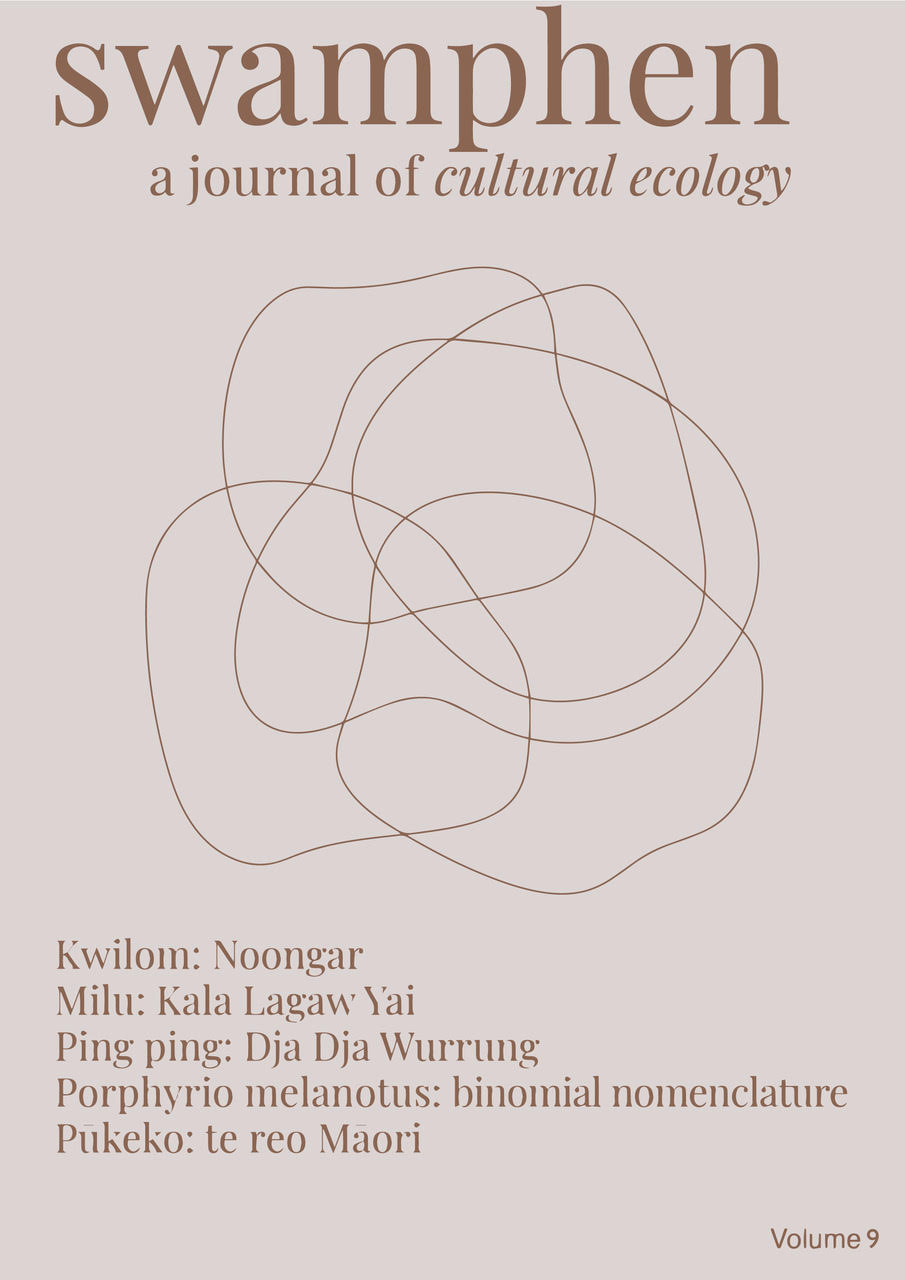To the City of Murky Dreams
DOI:
https://doi.org/10.60162/swamphen.9.17534Keywords:
Posthumanism, Urban Imaginaries, ecocriticismAbstract
This letter is addressed to the quintessential city, an urban imaginary that encompasses the hopes of planners, writers, and those entangled nature-cultures who populate them. From Ebenezer Howard’s Garden Cities of Tomorrow that set off the garden cities movement, to fiction such as Italo Calvino’s Invisible Cities, and Antoni Jach’s Layers of the City that explore the socio-historical construction of urban imaginaries and more recently Alexis Wright’s The Swan Book set in a climate changed future, cities can be seen as places of abundant resources or destructive development. A swell of these voices build throughout the letter as the many idealistic versions of the city entangle and prevent any one vision from solidifying. This letter will explore these contested imaginaries, particularly the way these imaginaries impact those who are welcomed, fed and allowed to prosper and those who are chased out, excluded, and destroyed. But this letter is also about particular cities: Jach’s Paris, Calvino’s Venice and Wright’s Southern Australian City but also the Kombumerri country (Gold Coast), the city I live in and onto which I inevitably read these imaginaries. How might cities such as those built on Kombumerri country and Naarm be reimagined through critical posthumanism? Drawing on the work of Karen Barad, Astrida Neimanis, Donna Haraway and Val Plumwood, this letter meanders through the murky waters, entangled buildings and constructed garden spaces of literary urban imaginaries as I unsettle the quintessential city.
Downloads
Published
Issue
Section
License
Authors who publish with this journal agree to the following terms:- Authors retain copyright and grant the journal right of first publication with the work simultaneously licensed under a Creative Commons Attribution License that allows others to share the work with an acknowledgement of the work's authorship and initial publication in this journal.
- Authors are able to enter into separate, additional contractual arrangements for the non-exclusive distribution of the journal's published version of the work (e.g., post it to an institutional repository or publish it in a book), with an acknowledgement of its initial publication in this journal.
- Authors are permitted and encouraged to post their work online (e.g., in institutional repositories or on their website) prior to and during the submission process, as it can lead to productive exchanges, as well as earlier and greater citation of published work (See The Effect of Open Access).

